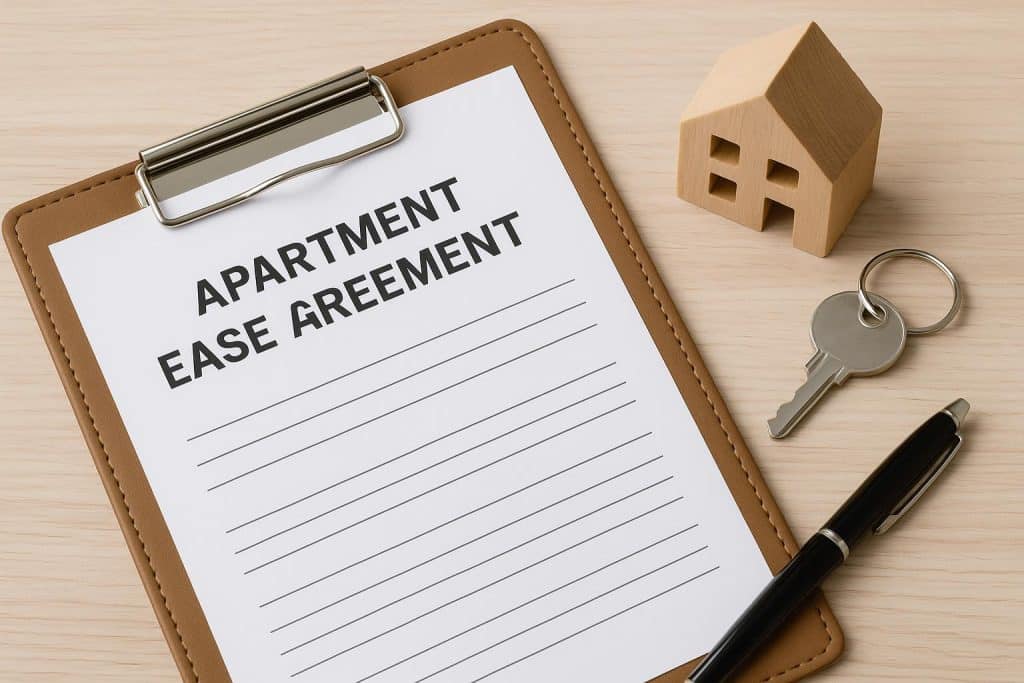Finding the right apartment can feel like a huge accomplishment. But before you start decorating and moving in, there’s one crucial step you need to handle carefully: reviewing and signing the lease agreement. For many tenants, especially first-time renters, the lease may seem like just another formality. However, this legal document determines the rights, responsibilities, and protections of both the tenant and landlord throughout the rental period.
Understanding what’s in your lease and what it means for you can help you avoid future disputes, protect your security deposit, and ensure a smooth rental experience. Here’s what every tenant should know before signing an apartment lease agreement.
What Is an Apartment Lease Agreement?
An apartment lease agreement is a binding legal contract between a landlord and tenant. It outlines the terms under which the tenant can occupy the property, including rent amount, payment due dates, lease length, and rules governing the space.
Because leases are enforceable in court, once you sign, you are legally obligated to follow the terms. That’s why it’s important to carefully review the document and clarify any unclear provisions before putting pen to paper.
Key Elements to Look For in a Lease
1. Lease Term and Renewal Options
Leases typically run for a fixed period, often 12 months, but some landlords may offer shorter or longer terms. Check whether the agreement automatically renews, requires renegotiation, or shifts to a month-to-month arrangement at the end of the term. Understanding this prevents unexpected rent hikes or forced move-outs.
2. Rent Amount and Payment Details
Pay attention not only to the monthly rent amount but also to how and when it must be paid. Some landlords accept electronic transfers, while others require checks. Also, look for details about late fees, grace periods, and charges for bounced payments.
3. Security Deposit Rules
Most landlords require a security deposit to cover potential damages or unpaid rent. Your lease should specify the deposit amount, conditions for withholding, and the timeline for returning it after move-out. Tenants should also know whether the deposit accrues interest, which is legally required in some states.
4. Utilities and Other Costs
Don’t assume all utilities are included in rent. The lease should clearly state which utilities you are responsible for (electricity, water, gas, internet, trash, etc.). Some buildings also charge additional fees for amenities like parking, pets, or storage.
5. Maintenance and Repairs
The lease should outline who is responsible for routine maintenance and major repairs. While landlords generally handle structural repairs, tenants may be responsible for smaller tasks like changing lightbulbs or unclogging sinks. Knowing this upfront helps avoid disputes when issues arise.
6. Rules on Subletting and Guests
Thinking about renting out your apartment on Airbnb or letting a friend crash for a few months? Check your lease first. Many agreements restrict subletting, long-term guests, or using the property for business purposes.
7. Termination and Eviction Policies
Life happens: jobs change, relationships shift, or financial hardships arise. Make sure you understand the penalties for breaking the lease early. Also, familiarize yourself with the grounds for eviction, such as unpaid rent or repeated violations of building rules.
Common Red Flags in Lease Agreements
While most landlords operate fairly, some may include clauses that are unfavorable to tenants. Be cautious if you see:
- Unclear or missing details about rent, deposits, or repairs.
- Excessive fees for late payments, guests, or minor infractions.
- “As-is” clauses that excuse landlords from making necessary repairs.
- Restrictions that seem unreasonable, such as banning all visitors or prohibiting minor decorations like hanging pictures.
If you spot any of these, ask for clarification or request changes before signing. Remember: leases can often be negotiated.
Questions to Ask Before Signing
- How often has rent increased in the past, and by how much?
- What’s the policy on renewing the lease?
- Who should I contact for maintenance issues, and how quickly are they resolved?
- Are there any upcoming renovations or construction projects that may affect living conditions?
- What is the process for returning my security deposit?
Having these conversations up front can save you from unpleasant surprises later.
The Importance of Reading the Fine Print
Many tenants make the mistake of skimming through a lease and signing it immediately. However, every clause matters, and ignoring them could cost you money or even jeopardize your housing stability. Take the time to read the lease thoroughly, highlight confusing sections, and if necessary consult a legal professional or tenant advocacy group.
Tips for Protecting Yourself as a Tenant
- Get everything in writing. If your landlord makes promises about repairs, upgrades, or rent discounts, make sure those details are included in the lease. Verbal agreements rarely hold up in disputes.
- Document the condition of the apartment. Take photos or videos when you move in and move out. This protects your security deposit by proving what damage existed before you arrived.
- Know your tenant rights. Tenant laws vary by state and city, covering everything from security deposit limits to eviction procedures. Familiarize yourself with local regulations.
- Keep copies of all documents. Save a copy of your signed lease, rent receipts, and any correspondence with your landlord.
Final Thoughts
Signing an apartment lease agreement is more than a formality; it’s a commitment that can impact your finances, lifestyle, and housing security. By carefully reviewing the terms, asking the right questions, and protecting yourself with documentation, you can enter your rental with confidence.
A well-understood lease sets the stage for a positive relationship between you and your landlord, giving you peace of mind to truly enjoy your new home.
